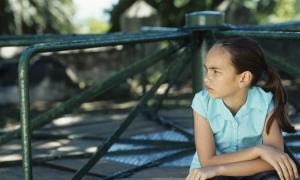It is not easy for my students in suburban St. Louis to connect with the characters in John Steinbeck’s Of Mice and Men. The novel is packed with gruff men. Middle aged, mostly friendless, they are all struggling to eke out an income on a ranch somewhere in California. The one glimmer of hope in Steinbeck’s classic emerges through the relationship between two men—George and Lennie. They are not relatives. Yet in a society where individualism is paramount, George does far more than merely put up with Lennie. He cares for this mentally challenged man, blankets him with a protective shield. Other characters turn from, threaten, and even belittle Lennie. Most are astounded by George’s choice to attend to someone who seems like such a burden.


